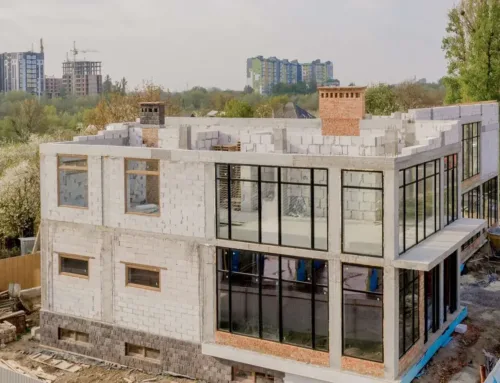At the beginning of the year, Inman published real estate marketing trends to watch out for in 2017 and what agents can expect.
The biggest takeaway?
Content marketing is more crucial than ever before.
The content you create will help you to:
- Get found via search engines
- Educate and inform prospects
- Generate and nurture leads
Today we’re going to go through five ways you can achieve all this and seal the deal through blogging.
Let’s make it happen!
Blog To Highlight Listings
In order to stand out among other agents, you’ve got to have something your area wants and make sure they know where to get it.
Think about the times when agents used to cold call an entire area they had a listing in and then send Just-Listed postcards to those same people.
Here’s how to get the upper hand and dominate without having to go out and farm communities.
If you have a Leadsite, you can use Instafarm by Easy Agent to get started with this. If you don’t, you can still write a blog to feature a single-property. Truthfully though, you’ll see more return this way.
Instafarm pages are great for laying out property photos and videos in a clean, organized way and overall create a better user experience.
The 5 Minute Customization, Done-For-You Formula
Time-saving hacks are always in style.
Use these 5 blog posts from Easy Agent to get more leads from search:
- Get more listings with this Facebook formula that only takes a minute
- Stop wasting leads: Find any phone number in 5 minutes for free
- Ready To Hire A Real Estate Virtual Assistant? Here is the exact 3 step formula to ensure you boost your profits
- Real Estate Business: The Top 5 Mistakes EVERYONE Still Makes (And How To Fix Them In 12 Minutes)
- How To Create a Real Estate Facebook Page in 5 Minutes
- 5 Real Estate Landing Pages That Are Getting Leads Online In 2017 (Includes 17 Done-For-You Headlines!)
These posts are also highly shareable and will help to drive traffic to your blog and real estate website. You can link to local resources and businesses to appeal to your community.
Feel free to tweak any of these headlines to apply to your own posts or use these to get started:
- Homebuyers: The Top 5 Mistakes EVERYONE Still Makes (And How To Fix Them In 5 Minutes)
- 10 Ways To Boost Your Home’s Curb Appeal This Summer For Less Than $100
- Learn The 7 Must-Know Tips For Homesellers In Just 5 Minutes (Plus the 1 formula to get your property sold this month)
Then schedule these posts out on Facebook and share them with the local experts you used as resources.
The Perfect FB Share Blogging Setup
There are two ways to make sure your content makes it to Facebook. You can either automate it or use native scheduling.
To schedule posts from Facebook, just click the down arrow next to Publish.
Otherwise, you can use a tool like Buffer or Hootsuite to auto-schedule your content across platforms.
Hootsuite and Buffer are both great choices for this and the one you start to use will be based on your personal and professional preferences and workflow. These two apps serve the same purpose, but let’s see how the two compare and what key aspects set them apart from one another.
Let’s start with Hootsuite. This platform allows you to manage your social media channels and is a nice option for teams as you can assign tasks to other users.
Buffer works similarly and was designed as a publishing platform for content and may be the more flexible option when it comes to automation because of the IFTTT tool.
Both apps allow you to post content to your channels in real-time, though Buffer’s main purpose is to schedule content in advance. You can also cross-post content to multiple social media channels at once, which can be super handy if you need to post an update on all of your pages.
A key difference here is your or ability to interact with your content after it’s posted. On Hootesuite you can respond to content, but Buffer is really only for publishing with the exception of retweets.
Buffer is a simple tool and effective way for you to schedule and publish content and will also easily integrate with your other tools. However, if you’re looking for a way to fully manage your social media channels and perhaps your marketing team, give Hootsuite a try.
Write Blogs People Actually Want To Read
When you’re just getting started, pushing out generic content is fine. But at some point you’re going to have to up your game.
Don’t over-complicate this though.
Really, you’re just finding a fresh angle, a new way to say what’s probably already been said before. Journalists do this all the time.
Karin Carr of Northern Atlanta Real Estate found huge success using this blogging strategy last summer. She wrote this blog post after finding out that a new Netflix series was going to start filming in her town.
And then she put it on Facebook…and got these results.
134 people shared her article to their entire list of friends. That’s an insane number of prospects she just reached!
Keeping up with current events is a must. To be an expert in your community, you’ve got to do a lot more than just conduct real estate transactions. You’ve got to be a go-to source of knowledge, education and sometimes even news and entertainment.
Target Your Market
Simply put, generic targeting gets generic results.
Just like you need to work to create thoughtful and captivating blog content, you also want to make sure the leads you want are going to see it.
To do this, you need to write for the exact people you want to reach.
Notice in the title of Karin’s blog she includes the name of her area. You should do this in most all of your posts to customize each one for your market. If you want to get the most qualified leads, your specific market should be part of your keyword.
You can take this a step further by using Facebook ad targeting to reach your ideal audience, but it needs to start in your actual blog.
What are keywords? Let’s quickly review.
There are different types of real estate keywords.
Generic real estate keywords are terms that will show up when researching in Googles Keyword Tool.
These terms are useful. But very competitive. You should stick with the hyperlocal keywords.
No buyer or seller wants to work with a generalist. They want to work with an agent who specializes in the area they are interested in.
You can even write for types of homes and clients, specific neighborhoods and zip codes and target new developments. The big portals are already doing this, but you’re already a step ahead because you have an inside-perspective into your area. Use this to your advantage.
That’ll do it for today!
What are you blogging about this month? Leave a link to your latest post in the comments so we can check it out!
Owner & Operator,
Chad Hett
The Elite Group
Largest Home Inspection Company in North America
Best Selling Author “Secrets Of Top Producing Real Estate Agents: And How To Duplicate Their Success.”




